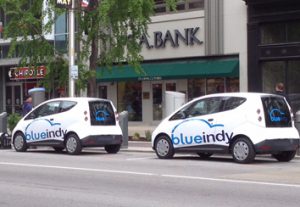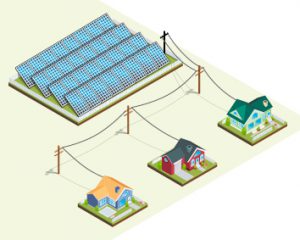Regulators deny Duke Energy’s proposed rate hike
Indiana regulators on Friday turned down a request by Duke Energy to raise rates over the next seven years, saying the request didn't provide enough detail to justify the $1.9 billion cost.
Indiana regulators on Friday turned down a request by Duke Energy to raise rates over the next seven years, saying the request didn't provide enough detail to justify the $1.9 billion cost.
Indiana Gov. Mike Pence approved a measure Wednesday to allow major utility companies to develop their own efficiency programs and charge customers to implement them.
Indiana lawmakers say the tougher federal standards on smog-forming pollution will harm the state's economy.
Senate Bill 412, authored by Sen. Jim Merritt, R-Indianapolis, is meant to replace the costly Energizing Indiana program, which the General Assembly canceled last year over the objections of environmental groups.
A bill that gives rural electric cooperatives and investor-owned utilities more leverage in territory disputes is headed for the desk of Gov. Mike Pence.

Indianapolis Power & Light Co. said Thursday it has enlisted 50 technicians from Ohio and Illinois to help inspect about 1,300 manholes and vaults in the utility's downtown underground network.
A nearly 300-acre plume of tainted groundwater in Kokomo has been added to the federal Superfund program's priority list that seeks to move along investigations of industrial contamination.

Regulators are taking “extraordinary” steps to investigate the failure of Indianapolis Power & Light’s underground network, Indiana Utility Regulatory Commission Chairwoman Carol Stephan said at a special meeting Friday morning.
Senate Commerce and Technology Committee members voted 6-0 Thursday to advance the measure that would gradually phase out the sale and production of cosmetics with microbeads. The House unanimously passed the legislation last month.
U.S. regulators invoked broad powers to ensure that Web traffic for all users is treated equally, adopting net-neutrality rules that supporters say will preserve a wide-open Internet and that opponents vow to fight in court.

The Indiana Utility Regulatory Commission on Wednesday shot down the bulk of a plan by Indianapolis Power & Light to charge ratepayers $16 million for costs involving a proposed all-electric car-sharing service called BlueIndy.

Imagine seeing the price of gas drop 50 percent, then finding out you couldn’t take advantage because of a law that excluded drivers who lease their vehicles or whose fuel tank is on the wrong side.
The Senate Utilities Committee on Thursday passed a bill that shifts leverage to Indiana’s largest utilities and electric cooperatives in their struggle to keep municipal-owned utilities from taking valuable territory.
Opponents of the bill say it would give big companies more leverage in negotiating connection agreements with smaller firms. Supporters say it just reduces redundancy in laws already on the books.

Investor-owned utilities are lobbying for a bill that would allow them to alter customers’ credits for net metering, or generating energy on-site and selling it back to the grid.
The Senate Utilities Committee voted 7-3 Thursday in approving a bill that would reduce state oversight of major utility companies' energy-efficiency programs.
The Indiana Senate Utilities Committee will consider a bill Thursday that could let power companies develop new energy-efficiency plans and then charge customers more to implement them.
Senate Bill 249, if passed into law, would ban communities from adopting an ordinance preventing the construction of livestock facilities.
The U.S. Supreme Court is stepping into a new case about Obama administration environmental rules, agreeing to review a ruling that upholds emission standards for mercury and other hazardous air pollutants from coal- and oil-fired power plants.
The stricter standards could make it one of the most expensive regulations ever issued, with an estimated $19 billion to $90 billion price tag and double the number of counties in violation.